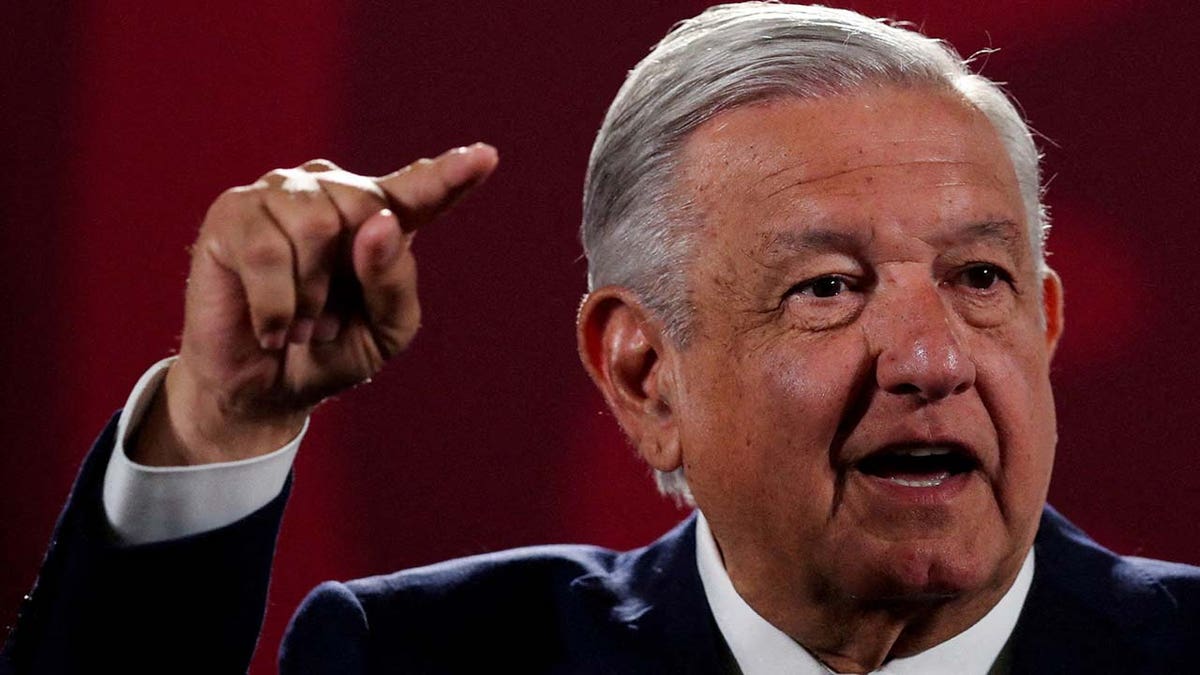Violent cartels fueling fentanyl crisis in America
Fox News senior national correspondent Rich Edson details the growing fentanyl crisis and the role cartels are playing in smuggling drugs across the border.
Mexican drug cartels are rapidly expanding fentanyl production, pushing more of the deadly drug into the United States and profiting markedly from an easily produced, highly addictive substance.
"Even seeing just one lab in Mexico pressing pills was something unique that we were seeing. And this was only a few years ago," said Uttam Dhillon, the former acting administrator of the Drug Enforcement Administration.
"Now we're seeing literally a million pills being seized in Los Angeles, for example, just a few months ago. So the growth has been massive."
The Sinaloa Cartel and its rival the Jalisco Carte are responsible for much of the fentanyl manufacturing and smuggling into the U.S., according to former officials and analysts.
In 2019, the United States successfully lobbied the Chinese government to bring fentanyl under a stronger regulatory regime. That cut fentanyl shipments from China to North America and opened an opportunity for Mexican cartels to manufacture the drug themselves.

This photo shows the largest seizure of fentanyl pills in California history. (Drug Enforcement Administration)
"The Mexican cartels run a global enterprise. They run it like a Fortune 500 company right now," Derek Maltz, a former DEA special agent, said on Fox News’ "America’s Newsroom." "They implemented a strategic, deceptive marketing plan to drive addiction and to drive profits."
"All they need are the precursor chemicals," said Dhillon. "Once they have those chemicals, they can manufacture those on an industrial scale."
Unlike cocaine and heroin, fentanyl is manufactured synthetically with chemicals produced largely in China and without crops grown in fields. The drug is acutely powerful in small doses, meaning smugglers can feed a market in the U.S. with far smaller shipments.
"If production costs a few hundred dollars, the sales in the United States will generate hundreds of thousands of dollars or potentially even more, depending how it is cut," said Dr. Vanda Felbab-Brown, director of the Initiative on Nonstate Armed Actors at the Brookings Institution.
"The profitability is also higher because the means of smuggling and transportation are greater, and the ease of evading law enforcement is great."
Ismael "El Mayo" Zambada allegedly leads the Sinaloa Cartel. The U.S. government is offering up to $15 million for his capture and $10 million for alleged Jalisco boss Nemesio "El Mencho" Cervantes.
"The individual leaders of these cartels are ruthless, greedy and sophisticated. These cartels take in billions of dollars a year, and the leaders profit from it every single day," said Dhillon. "They are very adept at avoiding U.S. prosecution and adapted, avoiding Mexican law enforcement."
In 2016, the U.S. government successfully partnered with Mexican counterparts to capture Joaquin "El Chapo" Guzman, the former head of the Sinaloa Cartel, after his years of successful escapes and evading law enforcement. Since then, that bilateral relationship has changed dramatically.
"The current administration in Mexico of President Andres Lopez Obrador has really eviscerated the cooperation," said Felbab-Brown.
"Mexico's decision not to cooperate effectively with DEA anymore is definitely frustrating," added Dhillon. "DEA and our law enforcement efforts — that cooperation is cooperation that we've had with Mexico for decades — it's critical to aggressively attack the cartels where they live in Mexico."

Mexico's President Andres Manuel Lopez Obrador gestures during a news conference at the National Palace in Mexico City, Mexico, June 20, 2022. (REUTERS/Edgard Garrido/File Photo)
President Lopez Obrador has embraced a policy of "hugs, not bullets" in dealing with the cartels, arguing that combating the criminal groups only creates more violence.
The DEA refused to comment for this story.
"CBP has made unprecedented investments in surveillance systems at our borders, deployed new nonintrusive inspection technology at POEs, and we leverage enhanced intelligence analysis and information sharing with other federal agencies and foreign partners," a spokesperson from the Department of Homeland said in a statement released to Fox News.
CLICK HERE TO GET THE FOX NEWS APP
A record 107,000 Americans died from drug overdoses in 2021, according to the Centers for Disease Control and Prevention. More than 70,000 of those victims were killed by synthetic opioids like fentanyl.












































